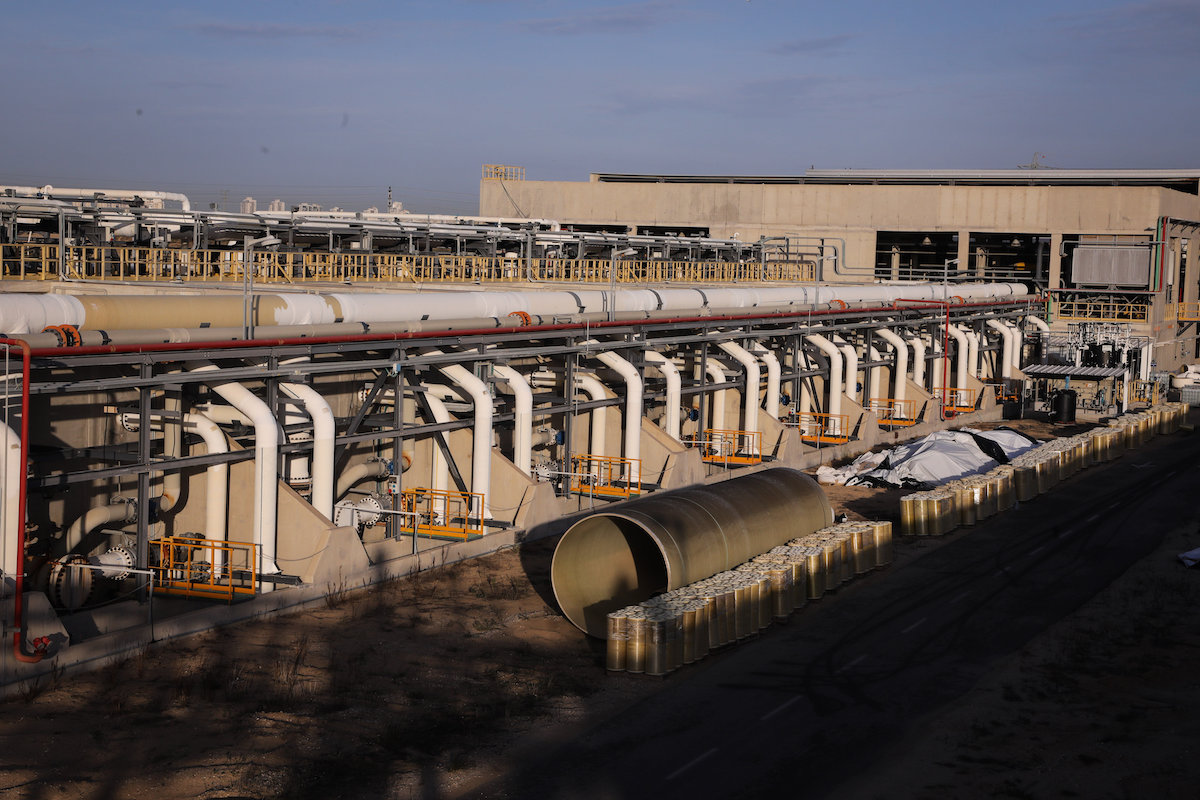Why Israel’s decades-long dependency on drinking water from the Sea of Galilee is over
A new significant water network transmits desalinated seawater from the Mediterranean to the Kinneret and helps with supply to Jordan

Lake Kinneret, commonly known as the Sea of Galilee, is biblically associated with many miracles performed by Jesus and Israelis might claim the lake has seen yet another “miracle.”
For the first time, desalinated water from the Mediterranean Sea is pouring into the lake through the “Reverse Water Carrier” project, launched by Israel’s national water company, Mekorot.
For many years, water flowed away from the lake and not toward it, as the Kinneret was the primary source of Israel’s drinking water, providing for about one-third of the local consumption. Constant pumping of the lake’s water against a growth of the national population in the 1980s and 1990s led to a concerning drop in the water level.
Between 2013 and 2018, almost no drinkable water was pumped from the Kinneret, according to Ynet news. Israelis felt dread whenever they heard reports that the lake was nearing its “red line” or “black line,” which meant the Sea of Galilee was drying up after a sparse rainy season.
A powerful TV campaign under the slogan “Israel is drying up” ran for years. In its latest version, from 2018, the ad featured Israeli celebrities urging the public to consume less water, warning of “years of drought,” as their faces started to crack and peel.
However, thanks to Israel’s new technology, this is no longer a concern for the Jewish state. Furthermore, Israel is able to provide a greater water supply to its neighbor Jordan than it was able to under the auspices of the Israel-Jordan Peace Treaty of 1994.

In 2021, Israel agreed to export up to 200 million cubic meters of desalinated water to Jordan as part of a water-for-solar-energy deal that includes the United Arab Emirates as a third party. The plan accounted for the largest water infrastructure project of the region materializing in the Jewish state.
The construction of the Reverse Water Carrier project began more than five years ago amid a severe drought, originally approved as an emergency plan to address the growing water shortage.
At an estimated cost of NIS 1 billion ($290 million USD), a 1.6-meter-wide (5.2 foot) pipe was laid across 31 kilometers (18 miles). The water carrier network pumps desalinated seawater from the Mediterranean Sea northwards to the Sea of Galilee, in the opposite direction of the national water carrier’s original route.
The “project proves that Israel is leading in innovative thinking and a creative planning approach to dealing with the effects of climate change, while guaranteeing a sustainable water supply, safeguarding Israel’s natural resources and maintaining the Sea of Galilee as a strategic buffer,” said Israel’s Water Authority Director Yehezkel Lifshitz.

Tal Heinrich is a senior correspondent for both ALL ISRAEL NEWS and ALL ARAB NEWS. She is currently based in New York City. Tal also provides reports and analysis for Israeli Hebrew media Channel 14 News.













